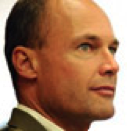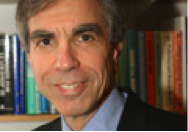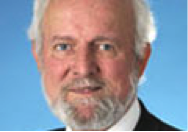
Maria Nazareth Farani Azevêdo
Ambassador of Brazil to the United Nations, Geneva
A new paradigm connecting energy-development-environment comes forth in the beginning of this century. As the growing world demand for energy poses challenges for sustainable development and environmental governance, renewable energy resources play a key role for the future of mankind. The positive environmental effects of replacing fossil fuels for those often called “green fuels”, for instance, constitute one of the strongest reasons for their use worldwide. President Luiz Inácio Lula da Silva has been personally engaged in advocating the economic, environmental and social benefits of using such kind of energy sources, especially as regards to biofuels. He presided last November, in the city of São Paulo, Brazil, the “International Conference on Biofuels: biofuels as a driving force of sustainable development”. Brazil views biofuels as a means to promoting sustainable development and making an important contribution towards addressing the global challenges of combating poverty, ensuring energy security and reducing emissions of greenhouse gases.
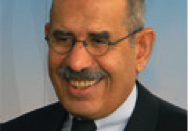
Mohamed El Baradei
Director General of the International Atomic Energy Agency
Two key challenges for energy policy include the establishment of a comprehensive global approach, and to ensure innovation through research and development. I have proposed working towards a new global energy organization to build on existing structures, and I welcome any steps that can be taken in that regard. Innovation across all energy technologies is also vital given the ever growing needs for “clean” energy.

Gabriel Barta
Head of Technical Cooperation, International Electrotechnical Commission
The main emphases for action to enable us to survive and prosper despite climate and energy challenges are clearly (a) all countries making their best effort, without preaching to others and without blaming them, and (b) placing these efforts sufficiently high in the priority order for the necessary investments to be made. In both respects emerging countries are crucial, because of their often inadequate current infrastructure, their rapid growth and economic power and their large and growing influence on climate and resource use. Tools for infrastructure leapfrogging and for fair comparisons of impact on the environment must consequently be suited to their use.

Robert F. Blum
President & Founder, Le Cercle diplomatique de Genève
The Energy Pact Conference aims to create in Geneva a platform for reflection and exchange which integrates the issues of energy, the environment and development. This multi-stakeholder conference will bring together for the first time high-level participants from different horizons and different cultures. The aim of Geneva’s Cercle Diplomatique is to create special links between diplomats, civil servants, and the Swiss and international civil society. Therefore, it is only logical that the Cercle supports the Energy Pact Conference. Only through a non-partisan dialogue between men of goodwill can we make our way together towards a world which is fairer, more humane, and safer for each and every one of us.

Carlos Busquets
Deputy Director, Policy and Business Practices, International Chamber of Commerce, Paris
The EnergyPact – UNCTAD conference recognizes the pivotal role that emerging countries will have in the transition towards a green economy. The private sector will be the main source of finance and investment to build a green future and companies helping achieve this working across global supply chains. The key will be for governments to provide a stable framework for investment and green markets to scale up solutions.

James Cameron
Executive Vice Chairman Climate Change Capital, UK
This event has chosen a subject of profound importance for the world. The dynamics of energy markets are increasingly driven by emerging economies rising middle classes with growing consumption ensures greater resource use and increased competition for all basic resources. Energy access is a serious political as well as economical issue. Climate Change amplifies risk across the world, and in places where water and food resources are scarce, famine, migration and social unrest threaten peace and security – the mandate of the United Nations. We need to look for answers in resource productivity. The innovation required to develop a greener economy will bring huge opportunity to emerging powers for producer nations as a natural “hedge” from high to low carbon, and for nations exposed to high cost inputs the prize is greater independence and flexibility.

Ron Cameron
Head, Nuclear Development Division OECD Nuclear Energy Agency
Demand for energy continues its inexorable rise and governments have to meet that challenge by developing energy sources that are affordable, safe, satisfy the need to limit climate change and provide the country with security of supply. How all these priorities can be met is a key challenge for the future. Nuclear power has been part of that solution for many years, but in the light of the Fukushima Dai-ichi accident, some countries are reconsidering their use, while others have confirmed it. How will nuclear develop in the next decades is therefore an important debate.

Paul Clements-Hunt
Head UNEP-FI
With energy demand in emerging economies booming, it is evermore important to intensify the dialogue between the sustainable community and leaders of emerging economies. My hope is that the 2011 EnergyPact Conference will be a turning point in this process – and conclude with a clear signal to Rio+20 conveners that the developing world intends to play a key role in the multilateral fight against climate change.
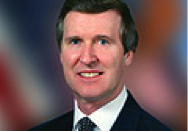
William S. Cohen
Former US Secretary of Defense
The new Obama administration will make combating global warming a top priority. Indeed, there is a moral, environmental, economic and security imperative to tackle climate change in a serious manner. The energy mix in the future must also consider environmental and sustainable development constraints. These issues will be fully developed during the Energy Pact Conference in Geneva in a unique, non-partisan multi-stakeholder setting. The time to act is now.

Loren C. Cox
Associate Director, Program Development, MIT Global Change Joint Program/CEEPR
The current global financial turbulence likely will be with us for some time, and will correctly claim the urgent attention of all global leaders. Absent stability and trust in financial institutions at national, regional and global levels, important goals in energy security, environmental accords, and development initiatives may be delayed—but not abandoned. The Energy Pact Conference can make a very useful contribution in thinking how to order priorities in these three important areas and thus lay the groundwork for more rapid progress when the global economy regains its balance—and the resources–to address more completely these complex but crucial matters.
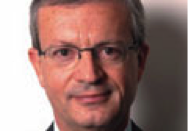
Yves-Louis Darricarrère
President, Total Exploration & Production
Our principal responsibility is to meet the demand for energy on a sustainable basis. That primarily requires committing substantial capital expenditure and driving continuous innovation to grow our oil and natural gas production, while ensuring the safety and security of our employees, contractors and neighbors and constantly reducing our environmental footprint. But we are also aware, like civil society, of the need to secure the longer-term future of energy. That’s why we are deeply involved in renewable energies like biomass and solar energy. As an engaged corporate citizen attuned to local aspirations, our core responsibility is to listen to our stakeholders and then creatively devise mutually beneficial solutions. For Total, being responsible means willingly facing up to the complex choices we must make, finding solutions to the problems we encounter, demonstrating professional discipline and unbending ethical conduct, delivering continuous improvements, informing, explaining, listening and dialoguing.

Poul Engberg-Pedersen
Deputy Director General, International Union for Conservation of Nature, IUCN
In today’s fast-changing and interconnected global economy, it is becoming increasingly urgent to improve international cooperation in addressing the major challenges of the future. Our capacity to adapt to and overcome these challenges is being increasingly compromised by climate change and environmental degradation. IUCN is committed to achieving sustainability, and sees this conference as a timely opportunity to further explore and advance the solutions needed to catalyze the necessary transition to a green economy. This transition will not be possible without the active engagement of all sectors of social and economic activity across all five continents. Emerging economies, in particular, will have a key role to play in setting a new course for development and in making the economy of the future a more resilient and sustainable one. IUCN welcomes the opportunity to contribute to this challenging task, and looks forward to collaborating with the global leaders convened at the Energypact UNCTAD conference in building the momentum needed to transition to a truly green world economy.

Narsi Ghorban
Secretary General of the Environment and Green Energy Commission, Iranian Committee of ICC
This conference is timely and discussing a very important subject.It is timely because it is organized a few days from COP 17 in Durban and nearly seven months from a very important conference in Brazil (Rio+20). It can add input to both these important events and allow discussion of various topics that cannot be adequately dealt with in Durban and Rio due to time constraint.The conference is dealing with the emerging economies approach to “Green Economy” which is currently the most important issue pursued by UNEP, UNCTAD, ICC, BASD and many developed and developing countries. Green Economy in the context of sustainable development and poverty eradication has been declared a priority theme of the United Nations conference on Sustainable Development in 2012.

Johnny El Hachem
Head of Environmental Finance, Edmond de Rothschild Group, Switzerland
In the wake of the current financial crisis with limited access to credit markets and certainty about the profitability and bankability of projects, transition towards a more sustainable global economy can only be achieved through the collaboration and partnership of both private/public actors. The Energypact UNCTAD conference acts as an important vehicle towards fostering partnership and working towards the achievement of more sustainable development.

Sven M. Hansen
Chief Investment Officer, Good Energies AG
A new paradigm connecting energy-development-environment comes forth in the beginning of this century. As the growing world demand for energy poses challenges for sustainable development and environmental governance, renewable energy resources play a key role for the future of mankind. The positive environmental effects of replacing fossil fuels for those often called “green fuels”, for instance, constitute one of the strongest reasons for their use worldwide. President Luiz Inácio Lula da Silva has been personally engaged in advocating the economic, environmental and social benefits of using such kind of energy sources, especially as regards to biofuels. He presided last November, in the city of São Paulo, Brazil, the “International Conference on Biofuels: biofuels as a driving force of sustainable development”. Brazil views biofuels as a means to promoting sustainable development and making an important contribution towards addressing the global challenges of combating poverty, ensuring energy security and reducing emissions of greenhouse gases

David Harris
Director of International Logistics Investments, Foreign Investment Office, Dubai
The growth of emerging markets has been nothing short of staggering these last few years, which is why it is equally important to embrace green tech solutions. A growing population and infrastructure puts significant strain on our limited resources and it is time we adopted alternative methods of growth.

David Harris
Director of International Logistics Investments, Foreign Investment Office, Dubai
The growth of emerging markets has been nothing short of staggering these last few years, which is why it is equally important to embrace green tech solutions. A growing population and infrastructure puts significant strain on our limited resources and it is time we adopted alternative methods of growth.

Robert Hensler
Geneva State Chancellor
Energy is as ubiquitous as the air we breathe. It is at the heart of human development, from the mastering of fire in the Stone Age to the mastering of the atom today. Yet, energy is more and more a cause of friction and conflicts, on one hand, and of impoverishment and inequality on the other. As energy consumption increases sharply, states compete to capture a larger size of the world’s resources. The consequences can be dire, as energy has ceased meaning oil or wind only, to also mean wheat, corn, sugar cane, or even water. The ubiquity of energy is more pervasive today than ever.
In this context, there is a growing need for discussion and debate to define the path to sustainable energy use, bearing in mind sustainability’s three dimensions, the social the economic and the environmental one.
Geneva, home to numerous governmental and non-governmental organisations, notably in the area of environmental protection (climate, conservation and development), as well as a prime centre for oil and natural resource trading, is ideally placed to lead this discussion. The presence in Geneva of most of the major United Nations agencies and the ninety conservation and development organizations installed here provide a fertile ground and a know-how on how to productively conduct high level meetings such as the Energy Pact Conference.

David Hiler
President of the Government of the Republic and State of Geneva
We are extremely pleased and proud to host the first international Energy Pact Conference in Geneva, especially since the local government is leading a very active and ambitious policy regarding the environment. Indeed, over the last few years the necessities of sustainable development have penetrated our main political parties and have started playing a growing part in Geneva’s economy. In the beginning of 2007, Geneva adopted the “2000-Watt Society” principle and gave itself an energy-guiding plan. The plan contained innovative measures regarding the quality of air, such as restricting traffic in the city centre. In the medium term, we hope to recycle 50% of urban waste, 85% of construction waste and 70% of the waste produced by the State. Geneva is also leading an ambitious investment policy in the field of public transport; it is extensively developing its tram lines and will soon have a cross-border regional train. Furthermore, Geneva is developing an “eco-neighborhood” project. These facts are concrete evidence that economic and environment-related aspects in Geneva, can be addressed together and in harmony.

Daniel Jaeggi
Vice President of Mercuria Energy, and Head of Global Trading
With crude oil prices so much lower than before, much needed investments in infrastructure, tankage, transport, production and refining are being delayed or cancelled. In addition, many energy sources that require investment are no longer economic. Biofuels, new deep sea finds, and Canadian tar sands are less attractive and in some cases completely uneconomic when oil is less than $50 a barrel. Other green energy investments—such as efforts to reduce carbon emissions—are also less viable, both politically and economically, while oil remains cheap.
A second issue of concern is the lack of investment in maintaining and developing existing oil fields. International oil companies—Exxon Mobil, Total, BP, Shell and the like—which have the expertise and technology to do this, are over time losing access to important fields in many parts of the world, in favor of national oil companies. Since the NOCs are relied upon by national treasuries as an important source of revenue, however, they tend to be less able to make the necessary investments to maintain and develop oil production.
These two worrying trends in the energy field need our attention. Both undermine the effort to maintain a stable energy supply and prices, and to meet growing demand in the future.
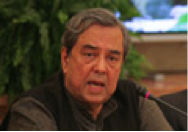
Ashok Khosla
President of IUCN (International Union for Conservation of Nature) and President of the Club of Rome
The Economy versus Energy, Equity and the Environment: The Empowerment DilemmaThe spectacular improvements in our lives over the past two hundred years have not come without cost. Close to one half of humanity (ten persons for every American) lives outside the mainstream economy. In just about one hundred years, we have used up close to half of the fossil fuels that took hundreds of millions of years to accumulate. Mapping the spread of water scarce regions could keep many cartographers busy full time. Dozens of species become extinct each day. 50,000 Sq. Km of fertile land become deserts every year. And our actions may well lead within a human lifetime to a deadly change in the global climate and loss of our life support systems.Rampant unemployment with accelerating inflation; rising prices and growing scarcity of energy, water and materials; declining crops and widespread hunger – these are the flip sides of many “successful” economies today, no less in many industrialized countries of the North than in the low income nations in the South. Few societies today have escaped the widespread scourges of growing pollution, waste accumulation, social alienation, drugs, terrorist threats and general insecurity.There is growing evidence that all these symptoms of a planet suffering form terminal disease come from the same basic causes: the consumption patterns and production systems of our economies. Our present concepts of development and modernity cannot be sustained for much longer.If the global economy is to flourish and the benefits it brings are to continue to reach everyone on the globe, now and in the future, the way we choose our technologies, design our institutions and relate to nature will have to change substantially.Ashok Khosla presents half a century of experience from IUCN, the Club of Rome and Development Alternatives, the first social enterprise to address such issues in the Third World, and the lessons it offers for the future of all.
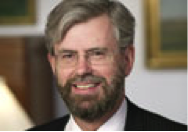
Hans Jorgen Koch
Deputy State Secretary, Ministry of Climate and Energy, Denmark
The time is limited to limit the consequences of climate change. The IPCC has made it clear: We have to halve our emissions in 40 years and the emissions need to peak within the next ten years. Denmark is hosting the 15th UN climate change conference (COP15) in December 2009. COP15 is crucial for the international climate change negotiations. The parties to the Climate Change Convention agreed at COP13 in Bali in December 2007 that negotiations on a future agreement have to be concluded at COP15 in Copenhagen. The Danish Governments goal is that COP15 will result in an ambitious global agreement that includes all countries of the world and which sets ambitious targets for reducing global greenhouse gas emissions. Ministers from over 170 countries are expected to participate in COP15.









